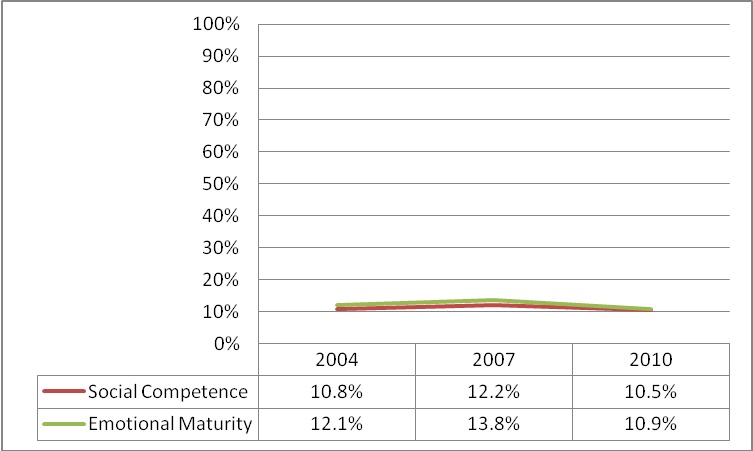Is it ever too early? Early childhood development indicators as an early warning
You might have noticed it in the title… the operative word being “early”. Every three years Senior Kindergarten teachers evaluate their students using the Early Development Instrument. This tool provides scores on a number of factors, two of which directly relate to crime prevention. Social competence measures a child’s interactions with others, ability to control their own behaviour, and cooperation with others. Emotional maturity measures a child’s ability for impulsivity control, ability to deal with feelings, and empathy for others. The percentage of children scoring low on these indices is noteworthy because antisocial behaviour among children is associated with an increased risk of persistent delinquency and criminal involvement later in life
The Statistics
 Data Source: Ontario Early Years Centre, A Community Fit for Children Report (Released Every Three Years)
Data Source: Ontario Early Years Centre, A Community Fit for Children Report (Released Every Three Years)
The Story Behind the Numbers
The percentage of children scoring low on the social competence and emotional maturity index declined from 2007 to 2010. However, despite the improvement Waterloo Region did not score as well as Ontario in 2011 which had 9.3% of children score low in social competence. Waterloo Region was also lower than Ontario, at 10.3%, on emotional maturity but this difference was not statistically significant. These numbers suggest that prevention opportunities exist through a focus on improving children’s emotional and social readiness for school.
Read the Community Responses:
- Put the focus on early learning, an upstream approach by Amy Romagnoli, Data Analysis Coordinator at the YMCA Ontario Early Years Centre.
